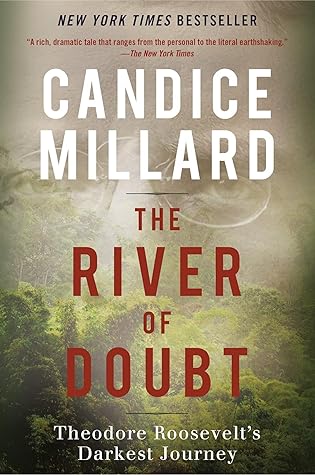More on this book
Community
Kindle Notes & Highlights
Read between
July 20 - August 4, 2024
Each time he encountered an obstacle, he responded with more vigor, more energy, more raw determination. Each time he faced personal tragedy or weakness, he found his strength not in the sympathy of others, but in the harsh ordeal of unfamiliar new challenges and lonely adventure.
Throughout his adult life, Roosevelt would relish physical exertion, and he would use it not just as a way to keep his body fit and his mind sharp but as his most effective weapon against depression and despair.
“He’s not strong, but he’s all grit. He’ll kill himself before he’ll even say he’s tired.”
“The only question that gives me concern in connection with it is whether letting you take it will tend to unsettle you for your work afterwards. I should want you to make up your mind fully and deliberately that you would treat it just as you would a college course; enjoy it to the full; count it as so much to the good, and then when it was over turn in and buckle down to hard work; for without the hard work you certainly can not make a success of life.”
By the time he was in the White House, Roosevelt was not merely the most powerful elected official in the country, but one of its most knowledgeable and experienced naturalists.
“The ordinary traveller, who never goes off the beaten route and who on this beaten route is carried by others, without himself doing anything or risking anything, does not need to show much more initiative and intelligence than an express package,” Roosevelt sneered. “He does nothing; others do all the work, show all the forethought, take all the risk—and are entitled to all the credit. He and his valise are carried in practically the same fashion; and for each the achievement stands about on the same plane.”
“I love peace, but it is because I love justice and not because I am afraid of war,”


